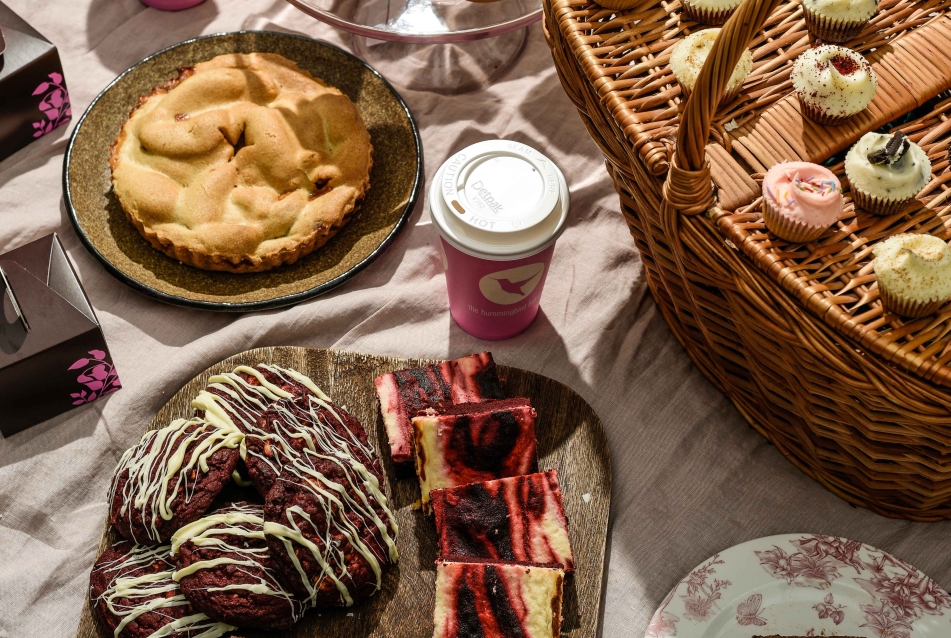Baking guide to raising agents

WE RAISE A FEW IMPORTANT QUESTIONS ABOUT OUR DEAR OLD RAISING AGENTS AND WHAT THEIR UNIQUE PROPERTIES BRING TO YOUR BAKES.
What do raising agents do?
Raising agents are powders that are added to baking mixtures which react chemically to release carbon dioxide.
The bubbles of carbon dioxide add air to the mixture, which is then baked and the air bubbles become locked into the protein structure of the sponge creating the fluffy crumb we know and love.

Can I swap one raising agent for another?
The short answer is no. For the longer answer, read our explanations of how the individual raising agents work below.
Raising agents react in completely different ways, so it’s advisable to choose a recipe for the raising agent you have available or you might waste a lot of ingredients only to bake a cake that is flat as a pancake and heavy.
How does bicarbonate of soda (aka baking soda) work?
Bicarbonate of soda, aka baking soda, aka sodium bicarbonate to those in white coats, or aka just plain old bicarb to us bakers, is an alkali raising agent. This means that it needs an acidic ingredient and moisture to be added to it to work.
A good example of this is our Red Velvet sponge, which uses bicarbonate of soda along with a little white vinegar and buttermilk to release the carbon dioxide and make the sponge rise.
Bicarbonate of soda is responsible for speeding up the browning process and can make cakes turn golden brown quicker.

How does baking powder work? Baking powder was developed as an alternative to yeast. It is made by mixing bicarbonate of soda with cream of tartar (an acidic by-product of the winemaking process) and these active ingredients are then bulked out with filler, such as rice flour.
Bicarbonate of soda is alkali and cream of tartar is acidic and the two react with moisture (e.g. milk in a cake mixture) to create bubbles of carbon dioxide.
What is the difference between bicarbonate of soda and baking powder? Bicarbonate of soda, aka baking soda, and baking powder are not the same thing and are not interchangeable in a recipe. They work in different ways and the recipes will be tailored to suit the recommended raising agent.
The main difference to be aware of is that baking powder doesn't require an additional acidic ingredient to get to work; it only needs moisture. Bicarbonate of soda can leave an undesirable tangy aftertaste to your bakes, whereas baking powder is neutral tasting.
There seems like a lot of raising agent in this recipe. Is it correct?
Before a recipe reaches the pages of your cookbook it has been tested several times. The raising agent will be selected to balance other ingredients in the recipe out and provide just the right amount of rise.
Sometimes this means using both bicarbonate of soda and baking powder. This is a trick used in recipes where the sponge or loaf has lots of heavy, dense ingredients in it, such as puréed pumpkin.

Do I need to sift raising agents?
Sifting is always recommended if you have time because it removes the lumps from your raising agents, which can settle during storage. It has the added benefit of getting more air into the mixture.
There’s no need to hold the sieve high over the bowl, the act of passing the ingredients through the sieve is enough and it won’t add any more air if the sieve is held higher.
I used raising agents and my cakes turned out flat. What could be wrong?
All raising agents have a use-by date and will lose their effectiveness if kept too long in the cupboard.
Check your ingredients are in date and throw out any old raising agents. It’s also worth double-checking your measurements as some recipes can require surprisingly large quantities of raising agents to get the required amount of lift. You may have used a teaspoon where a tablespoon was needed!

Ready to bake?
For step-by-step baking videos, subscribe to our YouTube channel.
Bake from The Hummingbird Bakery’s bestselling cookbooks and order your copy here.
Share your bakes with us on Facebook, Twitter and Instagram.
Happy baking! x
